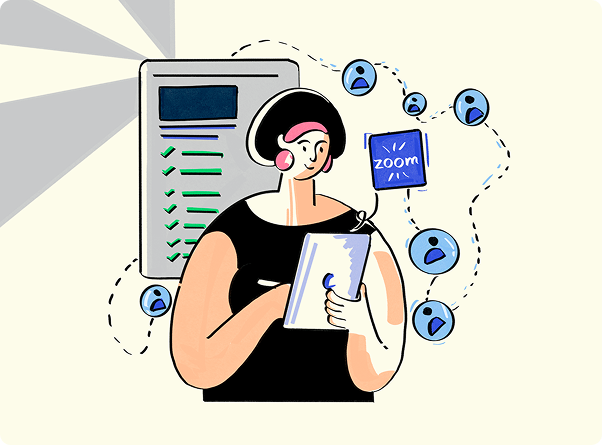




Key Takeaways
Introduction
EdTech is the abbreviation for Educational Technology, which refers to the use of technology to support teaching, learning, and educational management processes. EdTech includes a range of tools, software, and hardware that can enhance and transform traditional educational practices. Examples of EdTech include online learning platforms, educational apps, gamified learning solutions, virtual and augmented reality tools, and learning management systems.
EdTech has become increasingly important in education as it offers a range of benefits to students, educators, and educational institutions. It can enhance the learning experience by providing access to high-quality educational resources, engaging students with interactive and multimedia content, and personalizing learning to meet individual needs. EdTech can also improve the efficiency and effectiveness of educational processes, such as assessment and feedback, data analysis, and collaboration.
An EdTech company is a business that provides products or services that utilize technology to support teaching, learning, and educational management processes. EdTech companies can range from small startups to established corporations and can provide a variety of solutions, such as learning management systems, online courses, educational content, and mobile applications. The goal of an EdTech company is to use technology to improve the quality, accessibility, and affordability of education for students, teachers, and educational institutions.
Types of EdTech Companies
1. Online Learning Platforms
Online learning platforms provide access to courses and educational materials via the internet. These platforms offer a variety of courses and subjects, ranging from K-12 education to higher education and professional development. They are designed to be interactive and engaging, often including features such as quizzes, discussion forums, and multimedia content. Examples of online learning platforms include:
Coursera: Provides access to online courses from top universities and organizations around the world.
Udemy: Offers a wide range of online courses on various topics, from programming to cooking.
Khan Academy: Provides free online courses, tutorials, and practice exercises for K-12 students.
2. Learning Management Systems (LMS)
Learning Management Systems (LMS) are software platforms that help educational institutions manage and deliver educational content and courses. LMS platforms offer tools for course creation, delivery, and tracking, as well as communication and collaboration between teachers and students. Examples of LMS platforms include:
EdisonOS: Offers a comprehensive suite of learning management tools for K-12 schools, higher education institutions, and corporations.
Canvas: Provides a cloud-based LMS for K-12 schools, higher education institutions, and businesses.
Moodle: An open-source LMS platform used by schools, universities, and other organizations around the world.
3. Educational Content Providers
Educational content providers create and distribute educational materials such as textbooks, e-books, videos, and other multimedia content. They often use technology to create interactive and engaging content that can be accessed online. Examples of educational content providers include:
Pearson: One of the world's largest educational publishers, providing textbooks and other educational materials for K-12 and higher education students.
McGraw Hill Education: A publisher of educational content and digital learning solutions for K-12 and higher education students.
Houghton Mifflin Harcourt: Provides digital and print educational materials for K-12 students, including textbooks, online courses, and assessments.
4. Assessment and Testing Platforms
Assessment and testing platforms provide tools and software for creating and administering tests, quizzes, and other assessments. These platforms often use technology to provide data-driven insights into student performance and identify areas for improvement. Examples of assessment and testing platforms include:
Edmentum: Provides online assessments and adaptive learning solutions for K-12 students.
Turnitin: A plagiarism detection platform used by educational institutions to check the originality of student work.
ProctorU: Offers online proctoring services to ensure the integrity of online assessments.
5. Personalized Learning Platforms
Personalized learning platforms use technology to adapt learning experiences to the individual needs and preferences of students. These platforms often use algorithms and machine learning to provide customized learning paths and recommendations. Examples of personalized learning platforms include:
DreamBox Learning: Provides personalized math instruction for K-8 students using adaptive learning technology.
Knewton: Offers an adaptive learning platform that analyzes student data to provide personalized learning experiences.
Duolingo: Provides a gamified language learning platform that adapts to the learning style and pace of each student.
6. Educational Apps
Educational apps are software applications that provide educational content, activities, or tools on mobile devices. These apps often use gamification and other interactive features to engage students and enhance the learning experience. Examples of educational apps include:
Quizlet: A mobile app that provides flashcards, quizzes, and other study tools for a wide range of subjects.
Duolingo: An app that provides gamified language learning lessons and exercises.
Kahoot!: An app that provides interactive quizzes and games for classroom use.
7. Education Technology Consultants
EdTech consultants offer expert advice and services related to educational technology. They work with educational institutions and organizations to help them identify their technology needs, implement new solutions, and optimize their existing tools and systems. Examples of EdTech consultants include:
TeachEdison: With a focus on delivering disruptive technology solutions, TeachEdison works closely with educational institutions and organizations to understand their unique needs and challenges.
The Learning Accelerator: This organization helps schools and districts implement personalized learning models using technology. They offer consulting services on topics such as instructional design, data analysis, and teacher training.
EdTechTeacher: This consulting firm provides professional development and coaching to help teachers integrate technology into their teaching practice.
Benefits of EdTech Companies
1. Enhanced Learning Experience
EdTech companies have the potential to transform the way students learn by providing interactive and engaging content. With multimedia tools such as videos, simulations, and animations, students can explore complex concepts and ideas in a more immersive and dynamic way. This can lead to a deeper understanding of the material and a more engaging learning experience overall.
2. Accessibility and Flexibility
EdTech companies have made education more accessible to people around the world. Online learning platforms and tools have eliminated the need for physical classrooms and allowed students to learn from anywhere with an internet connection. This has made education more flexible and convenient, especially for working adults, people living in remote areas, or those with mobility issues.
3. Personalized Learning
EdTech companies can offer personalized learning experiences that cater to each student's unique learning needs and preferences. Adaptive learning software can analyze a student's progress and adjust the difficulty level of the content to match their abilities. This ensures that students are challenged but not overwhelmed, and can progress at their own pace.
4. Increased Engagement
EdTech companies have introduced new ways to engage students and make learning more fun. Gamification techniques, such as earning badges or points, can motivate students to complete tasks and stay engaged in the learning process. Interactive tools such as virtual whiteboards, online quizzes, and discussion forums can also encourage collaboration and participation.
5. Cost-Effective Solutions
EdTech companies have the potential to reduce the cost of education by providing more affordable alternatives to traditional learning methods. Online courses and digital textbooks can be significantly cheaper than traditional classroom-based courses and printed textbooks. Additionally, digital tools and software can streamline administrative processes and reduce operational costs for educational institutions.
Challenges of EdTech Companies
1. Technology Integration
One of the biggest challenges facing EdTech companies is ensuring seamless integration of their technology into existing educational systems. This can involve integrating with other software, learning management systems, and hardware devices. The compatibility and interoperability of different systems can often be a significant barrier to adoption and implementation of new technology.
2. Security and Privacy Concerns
EdTech companies must ensure that their products are secure and protect sensitive student and teacher data. As the use of technology in education continues to grow, the risk of cyber attacks and data breaches increases. EdTech companies need to prioritize data security and privacy and ensure that their products comply with applicable laws and regulations.
3. Lack of Personal Interaction
EdTech companies must also consider the potential loss of personal interaction between students and teachers. While technology can provide opportunities for remote learning, it can also create a distance between students and teachers. This can result in a lack of engagement and interaction, which can impact the quality of learning and overall educational experience.
4. Resistance to Change
EdTech companies face resistance from educators who are hesitant to embrace new technology and change established teaching methods. This can be due to a lack of familiarity with the technology or concerns about the impact on student learning outcomes. In some cases, teachers may feel that technology threatens their job security or autonomy in the classroom. EdTech companies must work to address these concerns and demonstrate the benefits of their technology to win over educators and administrators.
Future of EdTech Companies
1. Emerging Trends in EdTech
EdTech companies are constantly evolving and adapting to new trends in education. Some of the emerging trends in EdTech include:
Artificial Intelligence and Machine Learning: These technologies can be used to personalize learning, automate administrative tasks, and analyze student performance data.
Augmented Reality and Virtual Reality: These technologies can create immersive learning experiences and provide opportunities for remote learning.
Gamification: The use of game elements in education can increase student engagement and motivation.
Microlearning: Short, bite-sized learning modules can help students learn at their own pace and fit learning into their busy schedules.
2. Implications for the Future of Education
The integration of EdTech into education has the potential to revolutionize the way we teach and learn. With the rise of online and remote learning, EdTech companies have an opportunity to provide access to education for students who might not have had it otherwise. Additionally, personalized learning and data analytics can help educators better understand their students' needs and tailor instruction accordingly.
3. Opportunities and Challenges for EdTech Companies
As with any rapidly-evolving industry, EdTech companies face both opportunities and challenges. Some of the opportunities include the potential for global expansion, increased demand for personalized and remote learning, and the ability to help close the skills gap in the workforce. However, EdTech companies must also navigate challenges such as competition, regulatory compliance, and the need to continually innovate and adapt to changing trends in education.
Conclusion
EdTech companies have a bright future, with emerging trends and new opportunities for growth and innovation. By staying agile, responsive, and focused on delivering high-quality educational solutions, EdTech companies can help shape the future of education and improve outcomes for learners around the world.
Are you looking for an LMS platform? Look no further than EdisonOS. With us, you have all the tools required to launch and grow a knowledge business in your brand. We provide the edtech infrastructure to create a website, build online courses, host live classes, manage leads, automate marketing, collect payments, and manage operations.

Tutors Edge by EdisonOS
in our newsletter, curated to help tutors stay ahead!
Tutors Edge by EdisonOS
Get Exclusive test insights and updates in our newsletter, curated to help tutors stay ahead!
Recommended Reads
Recommended Podcasts











.png)
.webp)
